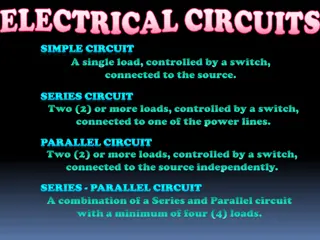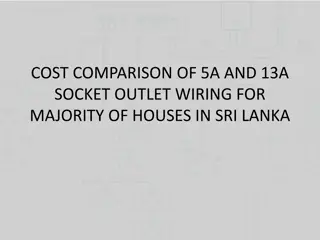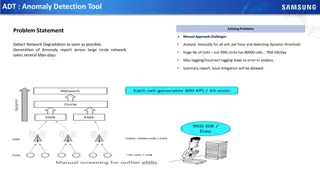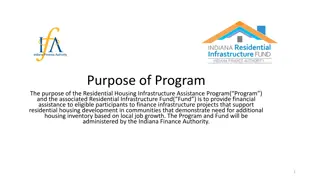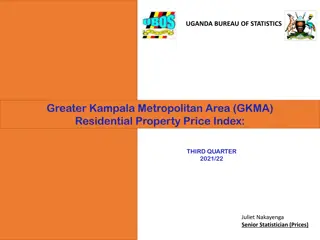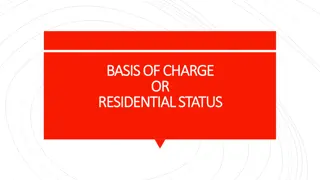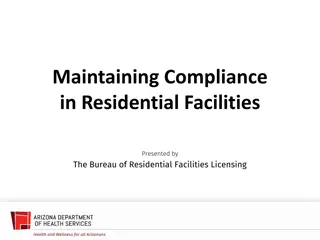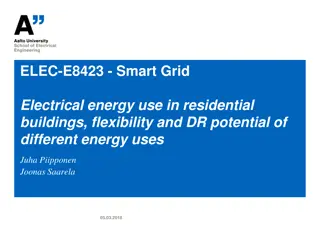
How To Choose The Best Residential Network Wiring For High-Speed Internet_
Discover how to choose the right network wiring for fast, reliable internet at home. Get expert tips for seamless connectivity.
Download Presentation

Please find below an Image/Link to download the presentation.
The content on the website is provided AS IS for your information and personal use only. It may not be sold, licensed, or shared on other websites without obtaining consent from the author. Download presentation by click this link. If you encounter any issues during the download, it is possible that the publisher has removed the file from their server.
E N D
Presentation Transcript
How To Choose The Best Residential Network Wiring For High-Speed Internet? As our homes become increasingly connected, the demand for fast, stable internet has grown exponentially. From streaming 4K content and participating in video conferences to managing smart home devices and engaging in online gaming, the quality of our network infrastructure plays a crucial role in our daily lives. At the heart of this infrastructure lies an often overlooked component: residential network wiring. While many homeowners focus on selecting the right internet service provider or the latest Wi-Fi router, the importance of proper network cabling cannot be overstated. It's the foundation upon which all your home's digital experiences are built. Don t believe us? Ask the professionals like Georgia Technical Services yourself.
The Cable Conundrum: Understanding Your Options When it comes to home network wiring, not all cables are created equal. Let's break down the main contenders: The Reliable Workhorse: Cat5e Cable Cat5e, or Category 5 enhanced, is like that dependable car that's been in the family for years. It's not the newest model, but it gets the job done. Here's what you need to know: Supports speeds up to 1 Gbps (that's pretty zippy for most homes) Can handle frequencies up to 100 MHz Works well for distances up to 100 meters (about 328 feet) For many households, Cat5e is still adequate. The Upgraded Model: Cat6 Cable Think of Cat6 as the sports edition of network cables. It's got some serious improvements under the hood: Cruises at speeds up to 10 Gbps for shorter distances (up to 55 meters) Handles frequencies up to 250 MHz Comes with better shielding to reduce that pesky crosstalk If you're looking to future-proof your home network solutions, Cat6 is a solid bet. Read More Articles: Top Benefits of Implementing Adds, Moves & Changes (MAC) for Your Business The Performance Package: Cat6a Cable Cat6a (the 'a' stands for augmented) is for those who want top-tier performance: Maintains 10 Gbps speeds for up to 100 meters Operates at frequencies up to 500 MHz
Has even better shielding for crisp, clear signals This is the cable for tech enthusiasts and heavy users. The Speed Demon: Fiber Optic Cable Fiber optics is the supercar of the cable world. It's not for everyone, but if you need speed, this is your pick: Blazing fast speeds from 10 Gbps to over 100 Gbps Immune to electromagnetic interference (no more signal hiccups!) Can cover vast distances without breaking a sweat The catch? It's pricier and trickier to install. Making the Right Choice: Factors to Consider Choosing the right residential network wiring isn't just about picking the fanciest cable. Here's what you should keep in mind: Future-Proofing Your Setup Think about where internet speeds might be in 5-10 years. That 1 Gbps connection might seem blazing fast now, but will it be enough in the future? Cat6 or Cat6a cables give you more room to grow. The Long and Short of It How far do you need to run your cables? Remember: Cat6 can do 10 Gbps up to 55 meters Cat6a maintains that 10 Gbps for a full 100 meters If you've got a sprawling mansion (lucky you!), those extra meters might matter.
Dealing with Interference Live near a radio tower or have a house full of electronics? You might need cables with better shielding. Cat6a or even fiber optic could be your new best friends. Installation Headaches Ever tried to thread a needle? Now imagine doing that inside your walls. Thicker cables like Cat6a can be a pain to install, especially in existing homes. Consider using conduits they're like secret tunnels for your cables and make future upgrades a breeze. Budget Realities Let's face it we can't all drive Ferraris. While better cables offer superior performance, they also cost more. Balance your budget with your needs. Sometimes, Cat5e is all you really need. Read More Articles: The Role of Content Marketing in London's SEO Landscape Best Practices for Home Network Wiring Now that you've chosen your cable, here are some pro tips to make your home network sing: 1. Go for the real deal: Use solid copper conductors, not the cheaper copper-clad aluminum (CCA). It just lasts longer. 2. Double up: Install at least two Ethernet ports per room. Trust us, you'll thank yourself later when you're not playing musical chairs with your devices. 3. Think vertically: Run cables to ceiling locations for future Wi-Fi access points. It's like planning for a second story before you build your house. 4. Get organized: Use a patch panel to keep your cables tidy. 5. Label everything: Clear labels on both ends of your cables will save you hours of frustration later.
6. Avoid electrical drama: Keep network cables away from power lines to reduce interference. 7. Leave some slack: A bit of extra cable gives you wiggle room for future changes. 8. Manage with care: Use J-hooks and Velcro straps for proper cable management. Wrapping It Up For most modern homes, Cat6 cabling hits the sweet spot between performance and price. If you're a power user or want to max out your future readiness, Cat6a is your go-to. And for those special cases where only the best will do, fiber optic is there to satisfy your need for speed. A well-planned and properly installed network is key to getting the most out of your high-speed internet. So, get in touch with Georgia Technical Services to get your work done right away! Site Article: How To Choose The Best Residential Network Wiring For High-Speed Internet?






